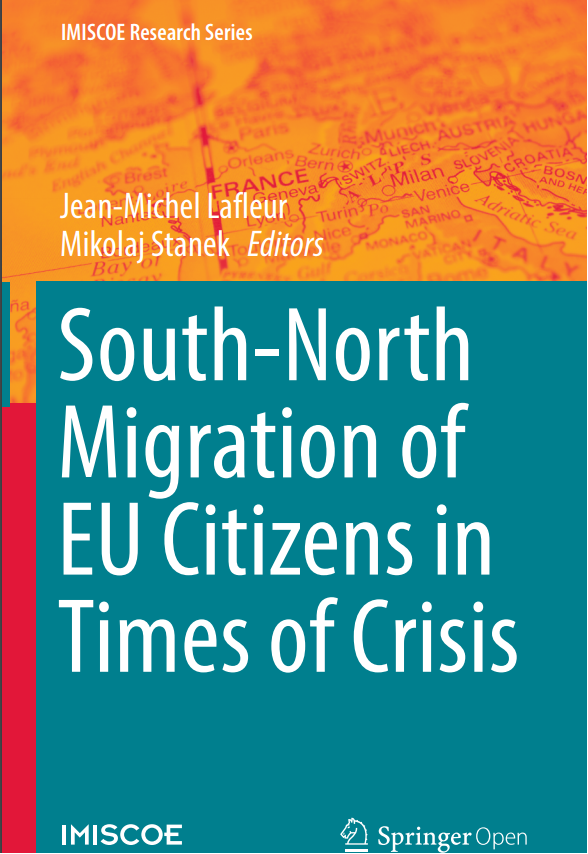
Title Structural emigration: the revival of Portuguese outflows
Author José Carlos Marques and Pedro Góis
Editor Jean-Michel Lafleur, Mikolaj Stanek
Date 2016
link for the page: https://link.springer.com/book/10.1007%2F978-3-319-39763-4
link for the book: https://link.springer.com/content/pdf/10.1007%2F978-3-319-39763-4.pdf
“Over the last 20 years the social, political and academic importance attached to Portuguese emigration, and in particular to emigration flows, has contrasted with the size and social significance of the migratory outflows during these years. Considered a feature of the past, and associated with a reality marked by low levels of development, emigration did not readily fit into the narrative of economic and social development promulgated during this period. Statistical data provided by host countries, however, shows that since the mid-1980s, and especially in the early years of the new millennium, the outflows of Portuguese citizens intensified, new emigration destinations such as Angola, Brazil, and the UK emerged, traditional destinations of emigration (e.g. France and Switzerland) became more developed, and forms of migration became more diverse. This diversification is one of the most distinct characteristics of current Portuguese emigration movements, noticeable through the development and combination of different forms of mobility (shortterm, temporary and more permanent) and the modification of emigrants’ sociodemographic characteristics. Although emigration of citizens with few qualifications continues to be dominant, it is noticeable that there is an increase in highly qualified migrants. […]”






